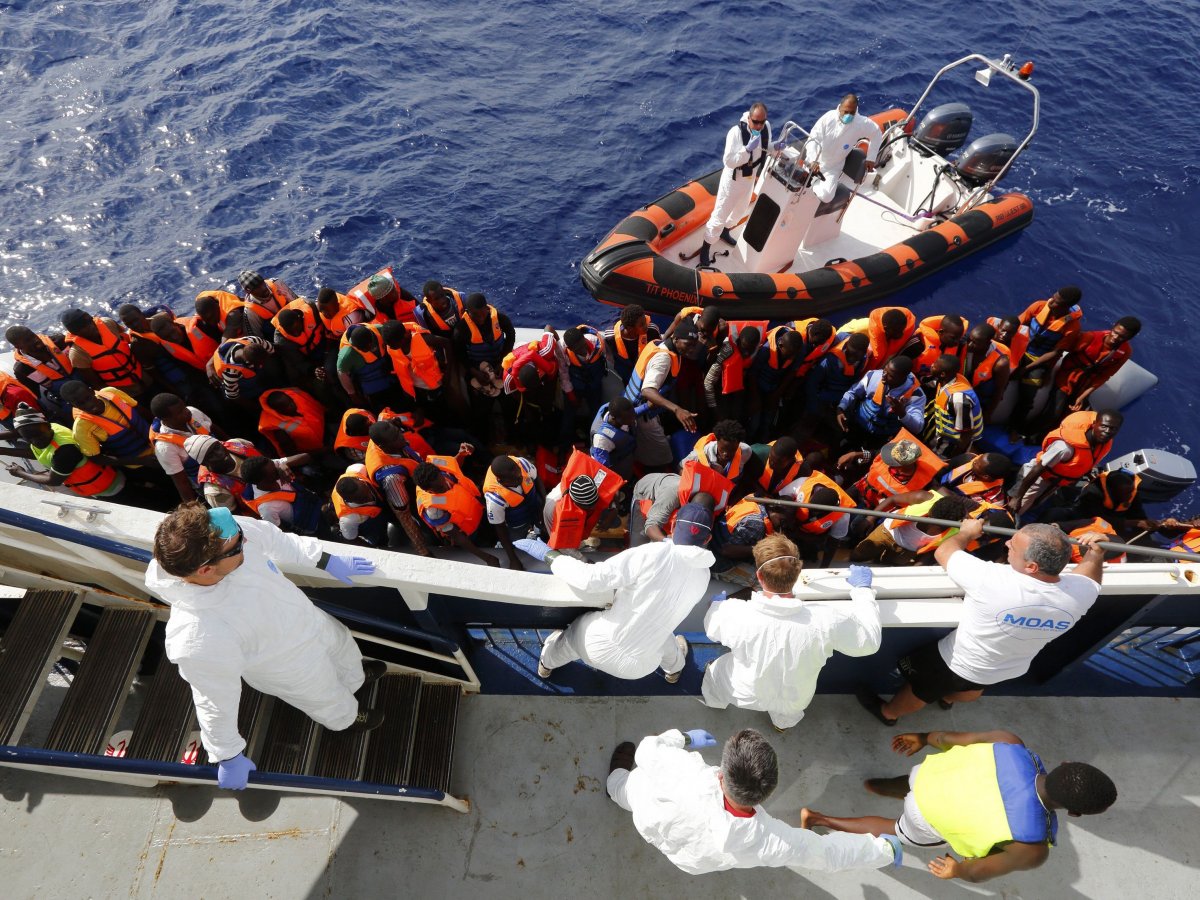Only 5,000 migrants may be allowed to resettle in Europe as refugees under the emergency summit crisis package, the rest are to be speedily repatriated. The package is to be agreed by EU leaders in Brussels on Thursday .
A confidential draft summit statement reported by the Guardian indicates that the vast majority of those who survive the journey and make it to Italy – about 150,000 did so last year – will be sent back as irregular migrants under a new rapid-return programme co-ordinated by the EU’s border agency, Frontex. More than 36,000 boat survivors have reached Italy, Malta and Greece so far this year.
In particular in terms of sharing responsibility across the EU the draft statement suggests only “setting up a first “voluntary” pilot project on resettlement, offering at least 5,000 places to persons qualifying for protection”, it says.
The draft summit conclusions also reveal that hopes of a major expansion of search-and-rescue operations across the Mediterranean in response to the humanitarian crisis are likely to be dashed, despite widespread and growing pressure. In essence their operational priority will be to keep the migrants out, not to rescue them.
EU foreign and interior ministers on Monday 20 April decided to double funding in 2015 and 2016 and “reinforce the assets” of the existing Operation Triton and Operation Poseidon border-surveillance operations, which only patrol within 30 miles of the Italian coast.
The European council’s conclusions said this move “should increase the search-and-rescue possibilities within the mandate of Frontex”. The head of Frontex said on Wednesday that Triton should not be an operation primarily aimed at search and rescue. (Frontex is the European border guard agency.)
Instead, the EU leaders are likely to agree that immediate preparations should begin to “undertake systematic efforts to identify, capture and destroy vessels before they are used by traffickers”. The joint EU military operation is to be undertaken within international law.
The statement calls the crisis a tragedy and says the EU will mobilise all efforts at its disposal to prevent further loss of life at sea and to tackle the root causes of the human emergency, including co-operating with the countries of origin and transit.
“Our immediate priority is to prevent more people dying at sea. We have therefore decided to strengthen our presence at sea, to fight the traffickers, to prevent illegal migration flows and to reinforce internal solidarity,” it says, before adding that the EU leaders intend to support all efforts to re-establish government authority in Libya and address key “push” factors such as the situation in Syria.
The EU leaders also make a commitment to “increasing emergency aid to frontline member states” – taken to mean Italy, Malta and Greece – “and consider options for organising emergency relocation between member states”.
EU leaders are expected to stress their determination to fight the traffickers and will promise to bring them to justice, seize their assets and make a concerted attempt to take down any online material likely to attract migrants and refugees.
On Monday, ministers and the European Commission agreed to bolster the Triton mission, to increase its funding and assets, and to expand the operational area of Triton, which is run by Frontex. But the head of Frontex, Fabrice Leggeri, said on the eve of the summit that saving migrants’ lives should not be the priority for his maritime patrols despite the clamour for a more humane response after the deaths of 800 refugees and migrants over the weekend.
He flatly dismissed turning the Triton mission into a search-and-rescue operation and voiced strong doubts about new EU pledges to tackle human traffickers and their vessels in Libya.
“Triton cannot be a search-and-rescue operation. I mean, in our operational plan, we cannot have provisions for proactive search-and-rescue action. This is not in Frontex’s mandate, and this is, in my understanding, not in the mandate of the European Union,” Leggeri said. Instead, he appealed for planes to conduct aerial surveillance so they could anticipate more disasters.







